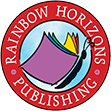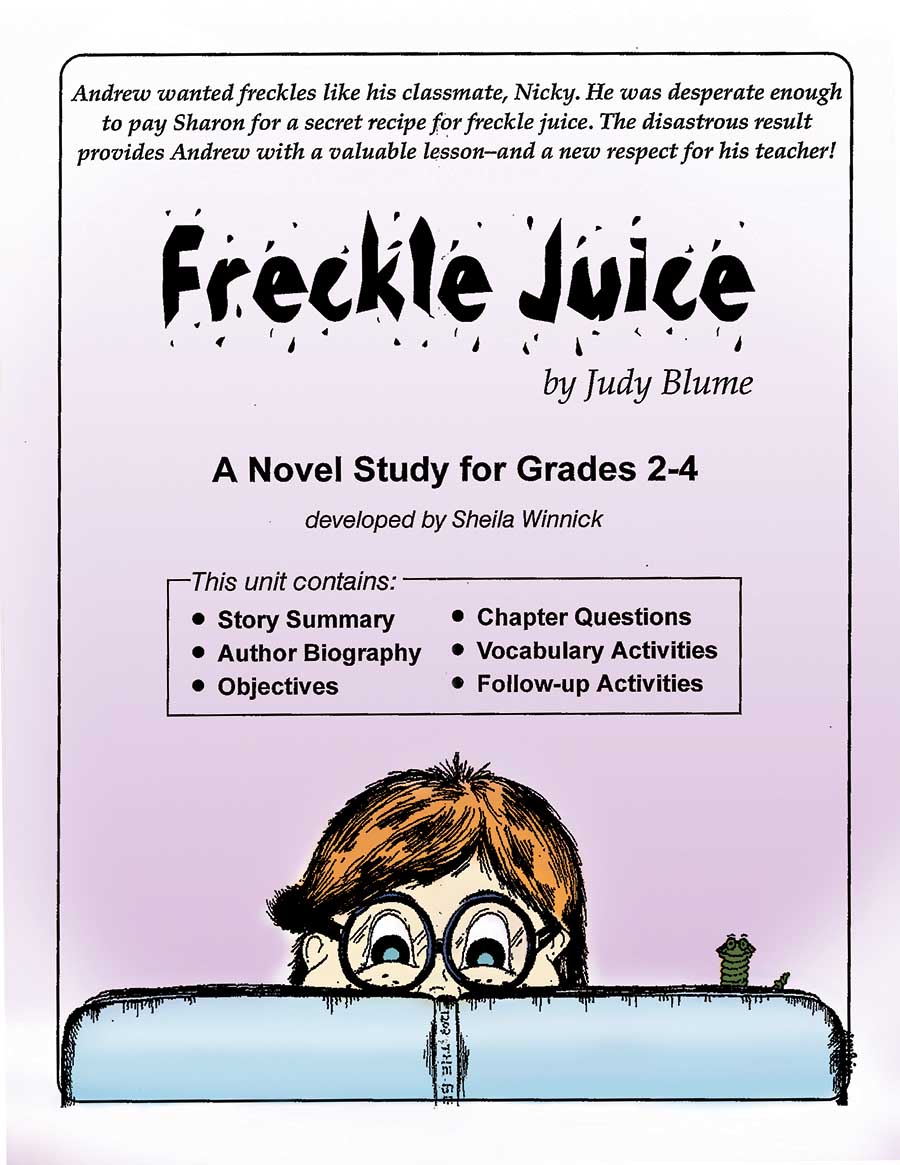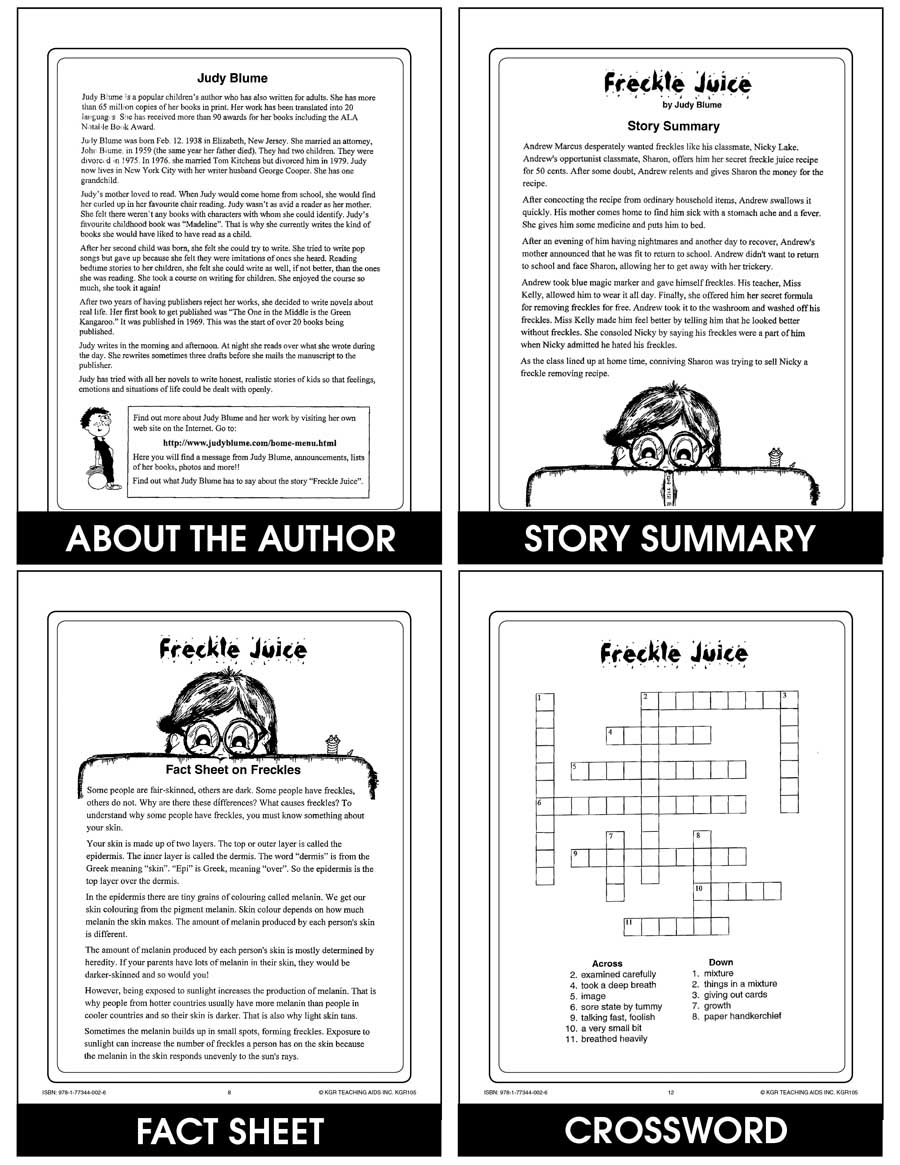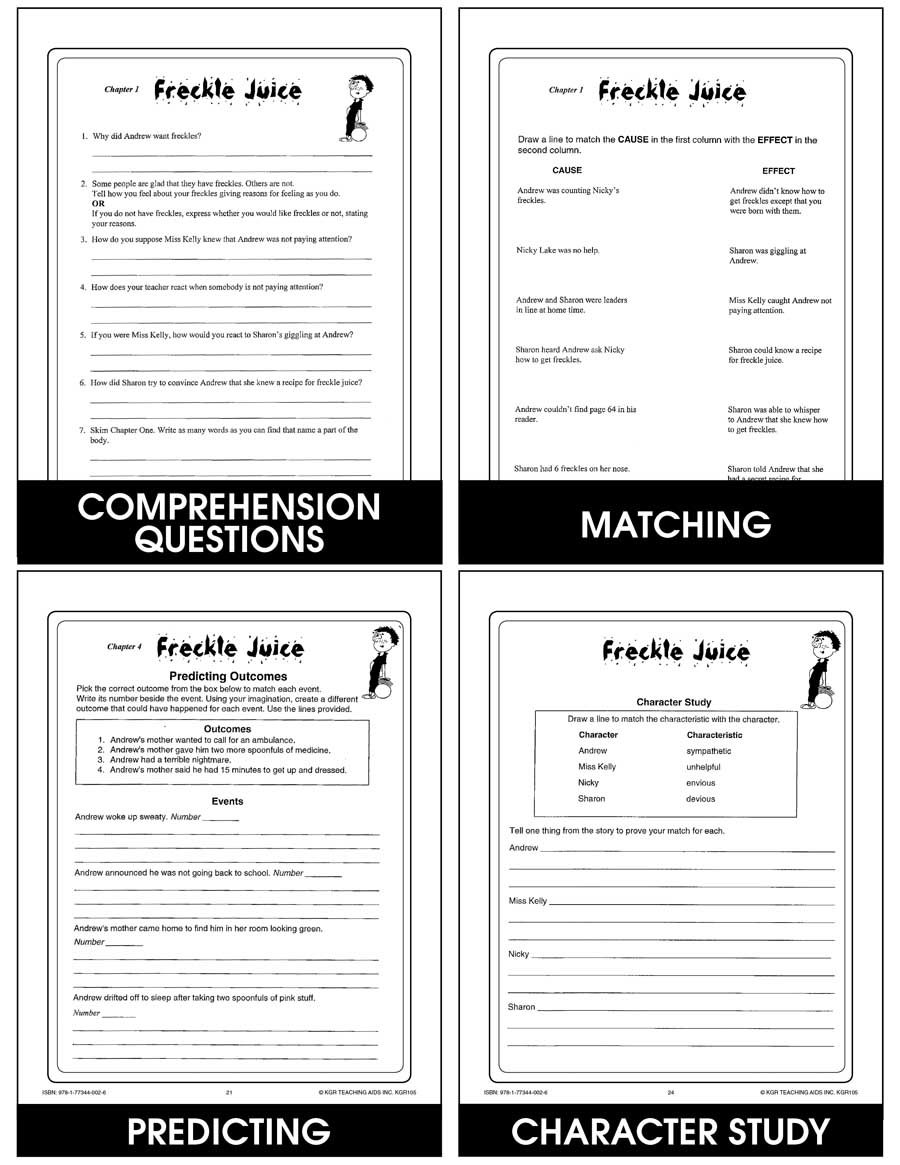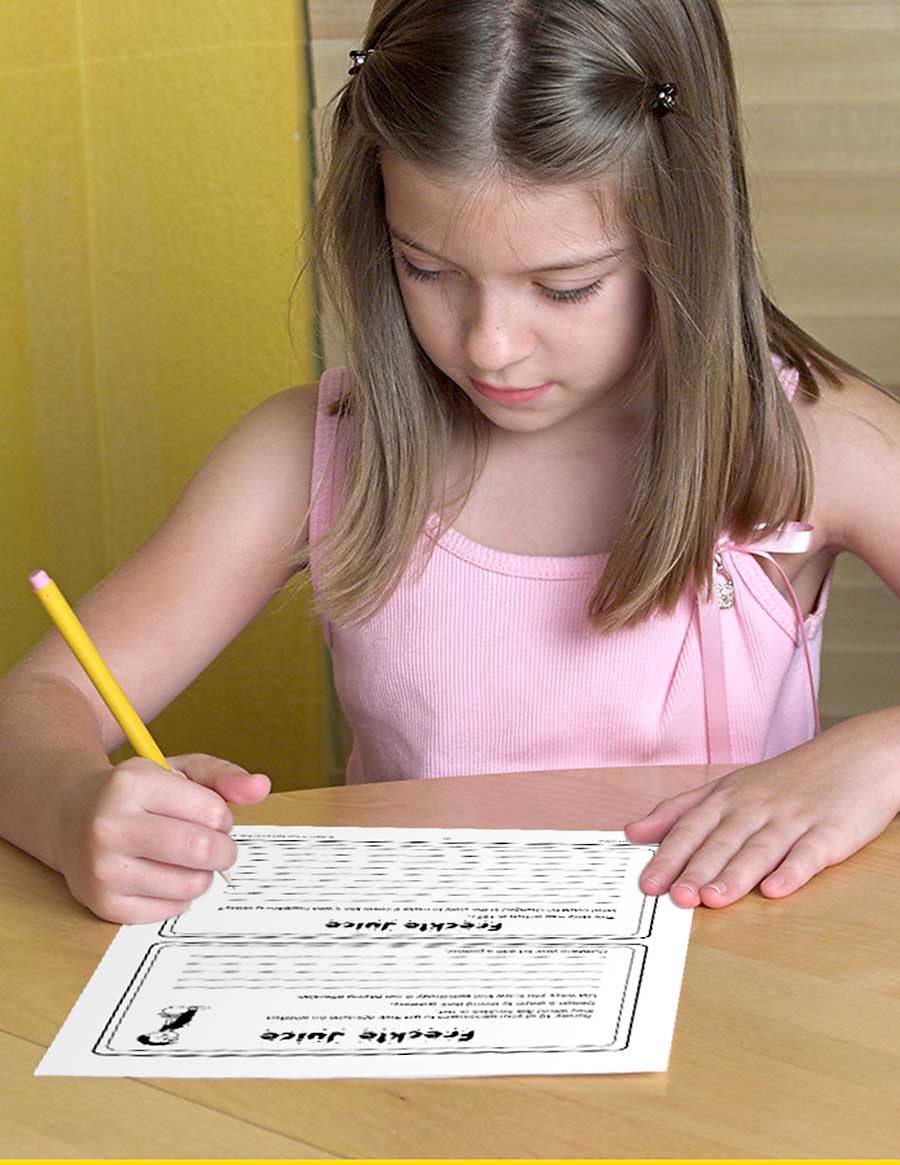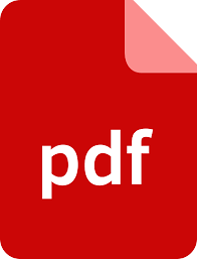Novel Study Guides >
Grades 2, 3, 4 >
FRECKLE JUICE NOVEL STUDY
FRECKLE JUICE NOVEL STUDY
Grades 2 to 4 - eBook - Lesson Plan

Order #: KGR105
ISBN13: 978-1-77344-002-6
Grades: 2, 3, 4
Reading Level: 2-4
Total Page: 35
Author: Sheila Winnick
Tweet
Description
**THIS IS AN INSTANT DOWNLOAD**
In this Novel Study guide, introduce students to a gullible boy who will believe anything to get what he wants. Andrew wanted freckles like his classmate, Nicky. He was desperate enough to pay Sharon for a secret recipe for freckle juice. The disastrous result provides Andrew with a valuable lesson—and a new respect for his teacher! This unit contains story summary, author biography, objectives, chapter questions, vocabulary and follow-up activities. This resource is meant to introduce the author, Judy Blume, and her writing; to check the students' comprehension of the story; to allow the reader to relate to and critically explore personal and social issues; to develop empathy for characters; to allow the student to communicate his or her knowledge of the text by providing situations for creative thought and writing; to develop and increase the student's knowledge of vocabulary in meaningful and entertaining ways, and to make technological links to literature.
In this Novel Study guide, introduce students to a gullible boy who will believe anything to get what he wants. Andrew wanted freckles like his classmate, Nicky. He was desperate enough to pay Sharon for a secret recipe for freckle juice. The disastrous result provides Andrew with a valuable lesson—and a new respect for his teacher! This unit contains story summary, author biography, objectives, chapter questions, vocabulary and follow-up activities. This resource is meant to introduce the author, Judy Blume, and her writing; to check the students' comprehension of the story; to allow the reader to relate to and critically explore personal and social issues; to develop empathy for characters; to allow the student to communicate his or her knowledge of the text by providing situations for creative thought and writing; to develop and increase the student's knowledge of vocabulary in meaningful and entertaining ways, and to make technological links to literature.
